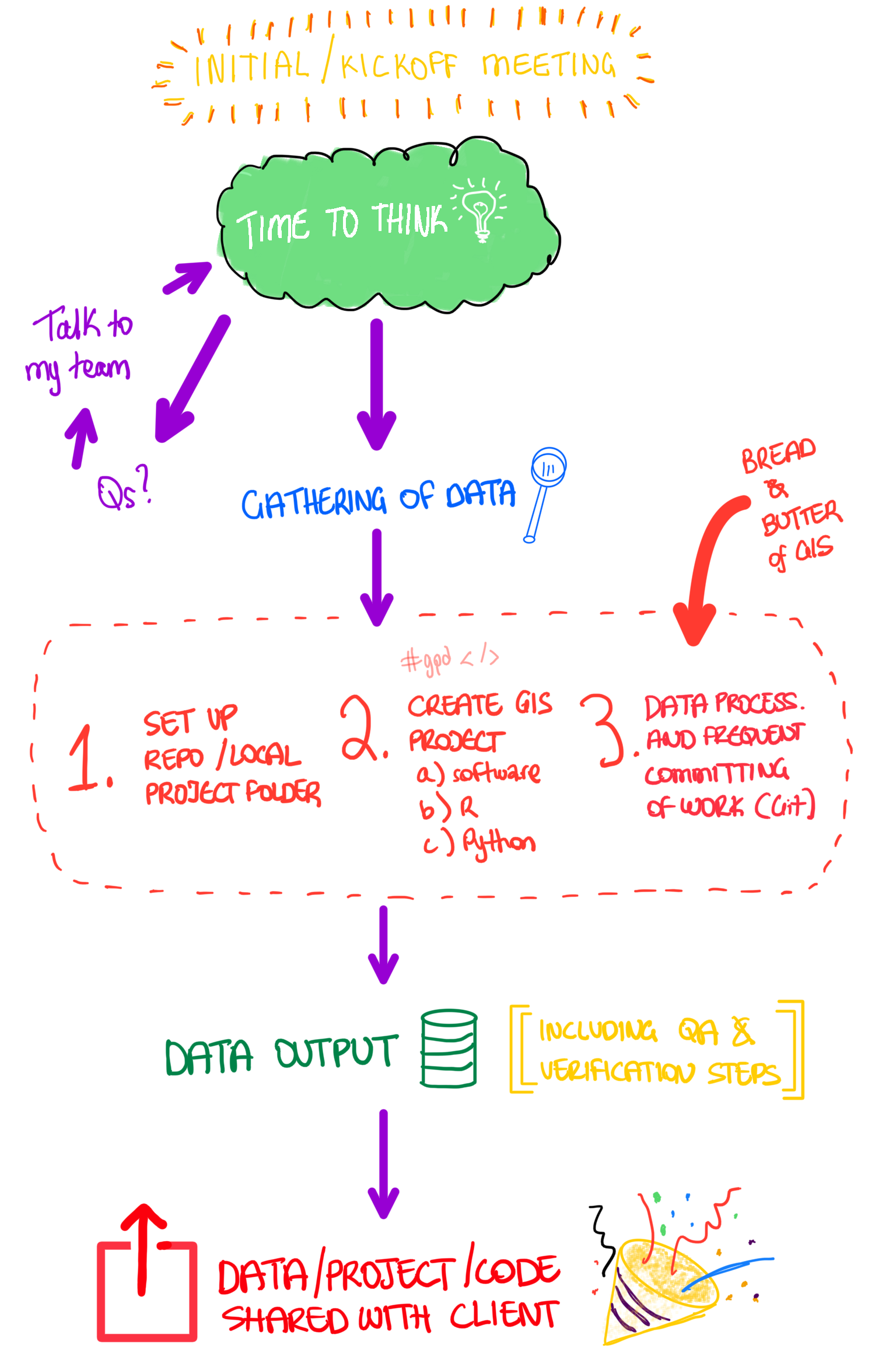
Working is silos… sometimes is considered the elephant in the room when it comes to collaborative work, and more generally when working in teams. I do acknowledge there are certain jobs that require this kind of isolation and of course many others that do not (i.e. surgeons in the OR). But here is my perspective from an environmental consultancy point of view, and more specifically from a geospatial scientist who codes, reports, liaises with clients on a weekly basis.
If you are still wondering what I'm talking about and finding this intro abstruse, let me explain. Most of us have encountered some sort of group work in our lives - either at university, work or someplace else. Obviously the importance is of different magnitudes but you're starting to get the idea of where I'm heading at. Isn't it quite often that we contemplate whether we work best and bring out our most productive selves when we work and collaborate closely as a team or when we work in silos - i.e. being isolated and with minimal communication with the rest of the team?
The short answer in my opinion is that it depends!! It depends on a number of factors for each individual. These can vary by the nature of the work, meaning the kind of deliverable/project to the client or the piece of work for a colleague. Is it a report that needs inputs and reviews by technical experts, is it the development of an interactive map (like this one), is it a piece of code that processes spatial data and needs detailed and to-the-point commenting and/or is it a bit more straightforward and it focuses on data provision? You get the gist!
I strongly believe that planning is pivotal. Let me explain. As in most consultancies my team needs to deliver projects within a set timeframe (i.e. the duration of the project). What I found helpful and important is that I need to understand the kind of deliverable (as mentioned in the previous paragraph) that needs to be prepared by myself (the project manager and project director deal with the allocation of tasks, finances and generally the admin work). What I mean by 'understanding' is to 'visualise' the outcome and have a plan of the steps to be carried by the deadline (either internal or the 'hard' external one). And yes even if the deadline is in 6 months or even a year. These help a lot as I need to play by my strengths (put the cheesy comments and cringe faces aside for now haha!).
In my case, I know that when it comes to compiling technical reports I need to pull my list of experts to help me. An extra pair of eyes ALWAYS helps and it's a very beneficial to ask for support, especially when the expert knows the client better. So in this case collaborative work is the way to go (through shared documents and frequent debriefs for example). Another type of deliverable, and the most common I'd argue, is the preparation and interpretation of spatial data through heavy coding. That's the nature of a project that I have more autonomy and I believe I work at my best. I ensure with the PD and PM (and generally team) what's expected and then I begin my journey which more often than not, looks something like this.

So to summarise my approach and more importantly to answer the question whether we should be working in silos, I'd say be open to a hybrid working. No one does wonders when working alone and no one excels when they are influenced by a team. Find the best in your abilities and do great things but also listen to your team and constructively build upon their feedback. If this workflow sounds complicated and looks like a mountain climb, practise it a bit more...and even if you struggle again, practise it again to get better. I never said it will be easy, but for sure it abso-fucking-lutely worth the effort.
Let me know if you have any further thoughts by replying to this email if you're a subscriber (or sending a direct one to chriiis@hey.com).
Til the next time ✌🏼
Top photo by Annie Spratt on Unsplash